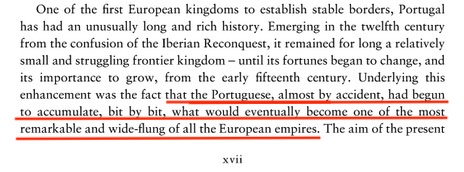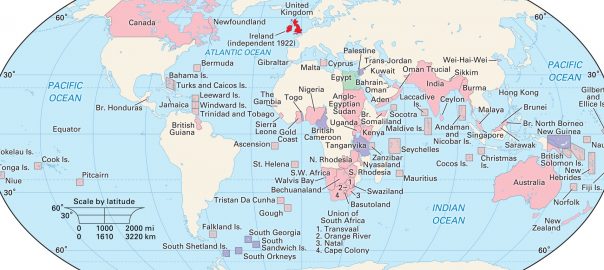I’ve been writing my longform article about the role Portugal made in pioneering the concept, practice, and justifying ideologies of Western empire-building in the past six centuries. (Stay tuned for news on that.) But I’ve been doing a bit of supplementary reading and I came across this quote, from the Preface of A.R. Disney’s A History of Portugal and the Portuguese Empire, Vol.1 (Cambridge U.P.: 2009):

This is very disturbing. It is so redolent of the famous remark the British historian John Seeley included in his 1883 book, The Expansion of England, where he wrote about the British Empire that, “we seem, as it were, to have conquered half the world in a fit of absence of mind.”
So now, Disney is writing that the Portuguese were essentially doing the same?
This is a serious cop-out. All the West-European world empires were actually “accumulated” through a series of deliberate decisions made and policies pursued. Some of the actors involved may have been private merchants and investors; others their national governments. But in the cases of all the European empires whose origins and development I have been studying, those decisions were taken in the context of (and amply supported by) the policies of their home/metropolitan governments. Those decisions involved the seizing by extreme force and stealing of lands far from their own and to which they had no conceivable claim; the enslavement, ethnic cleansing, uprooting, trans-shipment, or genociding (including cultural genociding) of a large portion of the human populations of those lands; and the plundering of those peoples’ resources and agricultural, manufacturing, and trading systems.
To claim that these outcomes were achieved through mere “absentmindedness” is an outrageous evasion of responsibility. To make that claim, as Seeley did, in 1883, was bad enough. For Disney to perpetuate it, in re Portugal, in 2009, seems far, far worse.
